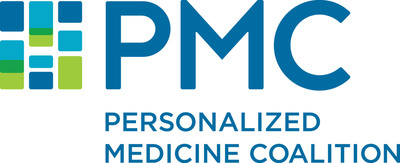On Friday, the Journal of Personalized Medicine published a first-of-its-kind study applying a quantitative multi-factorial framework to assess the clinical adoption of personalized medicine among a representative sample of 153 health care providers in the United States
|
WASHINGTON, March 16, 2021 /PRNewswire/ -- On Friday, the Journal of Personalized Medicine published a first-of-its-kind study applying a quantitative multi-factorial framework to assess the clinical adoption of personalized medicine among a representative sample of 153 health care providers in the United States. In demonstrating that the vast majority of health care institutions are taking steps to integrate personalized medicine into clinical care, the study underlines the field's evolution from a promising concept introduced following the completion of the Human Genome Project in 2003 to a practical reality today. In the article, titled "A Quantitative Framework for Measuring Personalized Medicine Integration into US Healthcare Delivery Organizations," a team of authors led by Health Advances Vice President Arushi Agarwal and Personalized Medicine Coalition Senior Vice President for Science Policy Daryl Pritchard, Ph.D., examines the extent to which academic health systems, community health systems, and integrated delivery networks are implementing strategies to utilize data on patients' biological characteristics and environmental circumstances to develop tailored health care plans for the prenatal and preventive screening of healthy patients as well as those with cancers, suspected rare diseases, and chronic diseases for which pharmacogenetic applications may be available. The article shows that despite considerable heterogeneity in how clinical institutions are adopting personalized medicine, 83 percent of the institutions studied scored a two or higher on the five-point scale used to examine their integration efforts, with the majority (61 percent) scoring a two or three. The data indicate broad adoption of personalized medicine across the United States health system. However, with only 22 percent of institutions scoring a four or a five, considerable opportunities remain to further optimize personalized medicine integration. "This landmark study provides a snapshot of the scope of health care providers' broad-based efforts to adopt personalized medicine based on its potential to improve patient care and make health systems more efficient, though it also indicates that we have a long way to go before patients derive the benefits of personalized medicine even now available to them," said PMC President Edward Abrahams. About the Personalized Medicine Coalition: Contact: Christopher J. Wells
SOURCE Personalized Medicine Coalition |





